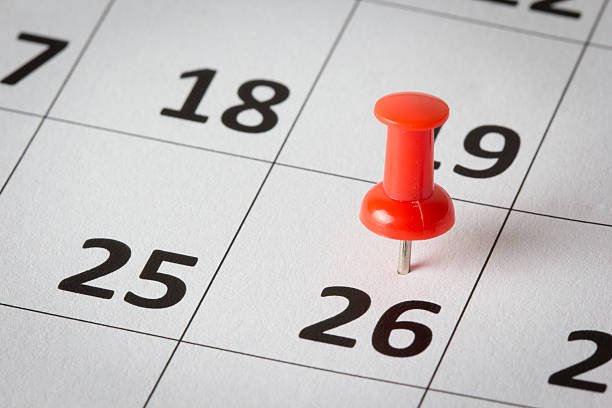REA Clusters

Mandated by the European Commission to support the EU Research and Innovation policy, the European Research Executive Agency (REA), funds high-quality research and innovation projects that generate knowledge for the benefit of society. REA also manages promotion measures concerning agricultural products.
REA’s responsibilities are to:
- Manage research projects supported under Horizon Europe, the world’s largest framework programme for research and innovation to date, running from 2021 to 2027.
- Manage research projects supported under Horizon 2020, the previous framework programme for research and innovation (2014-2020).
- Implement the European Union programmes Promotion of agricultural products and Research Fund for Coal and Steel, as well as ongoing projects funded under the EU’s 2014-2020 budget.
- Assist funding and tender applicants, beneficiaries and independent experts.
- Manage the European Commission’s Research Enquiry Service, which answers questions from grant applicants, EU-funded researchers and the public.
- Support independent experts evaluating project proposals competing for EU research funds.
- Assist with the legal and financial validation of all European Union programme grants and procurement operations directly funded by the European Commission.
Programmes and project opportunities
The agency manages the following EU programmes (or parts thereof):
Horizon Europe
Horizon Europe Pillar 1 - Excellent Science
Horizon Europe Pillar 2 - Global Challenges and European Industrial Competitiveness
- Culture, Creativity and Inclusive Society
- Civil Security for Society
- Food, Bio-economy, Natural Resources, Agriculture and Environment
Cross-cutting activities spanning all three pillars of Horizon Europe: Widening participation and strengthening the European Research Area
- Widening participation and spreading excellence
- Reforming and enhancing the European Research and Innovation system
Other European Union programmes
All funding information and procedures on how to apply are on the Funding and Tenders portal.

General conditions
Any type of organisation can apply for Horizon Europe funding as long as they have the operational and financial capacity to carry out the tasks that they propose.
For most calls for proposals, you must apply as a team of at least 3 partner organisations from 3 different EU or associated countries. At least one of the 3 partners must be from an EU country. In addition to these 3 partners, organisations from other countries might be able to join your consortium. Please consult the Horizon Europe programme guide
Further details or exceptions are listed on the pages of the call topics in the Funding & tenders portal.
Some calls for proposals require a so-called multi-actor approach: this means your proposed project must involve a diverse set of stakeholders, in particular end-users and users of the project’s results.
Applicants by topic
Applicants could, for example, include the following stakeholders (non-exhaustive list):
Horizon Europe Cluster “Culture, creativity and inclusive society”
- Universities and research institutes
- Local, regional and national public administrations
- Museums, cultural institutions and the cultural tourism industry
- Small and medium-sized enterprises (SMEs) in the field of digital technologies such as augmented reality and virtual reality
- Non-governmental organisations (NGOs) active in the field of migration and radicalisation
Horizon Europe Cluster “Civil security for society”
- Universities and research institutes, especially in the areas of cybersecurity, security R&I, information and communication technologies, Artificial Intelligence, social sciences and humanities
- Industry and SMEs in the fields of cybersecurity, security R&I, ICT, Artificial Intelligence
- European standardisation organisations
- Ministries, national & local authorities
- Law enforcement agencies, border and custom authorities, crisis management security authorities, civil protection authorities
- Emergency services, hospital, medical centres
- First responders NGOs
- Critical infrastructure
Horizon Europe Cluster “Food, bioeconomy, natural resources, agriculture and environment”
- Universities and research institutes
- Civil society organisations including NGOs and consumer associations
- Public administration including legislators and implementing authorities
- Industry and SMEs
- End-users, including but not limited to farmers, foresters, advisors, municipalities, water utilities, citizens’ associations, professional associations
Horizon Europe “Reforming European R&I”
- Universities, research centres
- NGOs, governmental organisations, civilian volunteer organisations, civil society organisations
- Citizens associations
Every consortium must assign a project coordinator who will be the main contact for the European Research Executive Agency throughout the project.

Funding procedures can have 1 or 2 stages
Depending on the technical nature of the field, the budget available and the expected number of proposals, the application procedure can involve one stage or two.
Under the 1-stage procedure, you will submit a full application at the outset of the process. Under the 2-stage procedure, you must first submit an initial summary proposal. If your proposal is shortlisted, you will be invited to submit a full application in the second phase.
Once you have identified a relevant call, read its guidelines carefully. Be sure to check in its criteria and requirements whether you are eligible before going further.
Eligibility
Before preparing your proposal, always consult the call guidelines to ensure that you are eligible. Specific criteria are set out in each funding programme and individual call.
Register
Before submitting a proposal, you might need to register your organisation with the Commission. The call guidelines will specify whether and how you need to do so.
Find partners or apply as an individual
Most funding opportunities are collaborative projects. However, you can apply for a funding grant as an individual researcher, team or organisation at the European Research Council (ERC) and Marie Skłodowska-Curie actions (MSCA).
Prepare and submit your proposal
Preparing a proposal is a time-consuming process! Make sure you give yourself enough time to prepare your proposal before the deadline specified in the call.
All the documents and templates you will need to use will be listed in the guidelines for your chosen call. Be sure to follow these guidelines closely. If you fail to do so, the Commission might disqualify your proposal as inadmissible.
Admissibility
To be considered, your application must
- be submitted on time - before the closing date specified in the call - through the electronic submission system
- be complete – accompanied by the relevant administrative forms, proposal description and any supporting documents specified in the call
- be concise - the proposal template will specify a maximum number of pages


